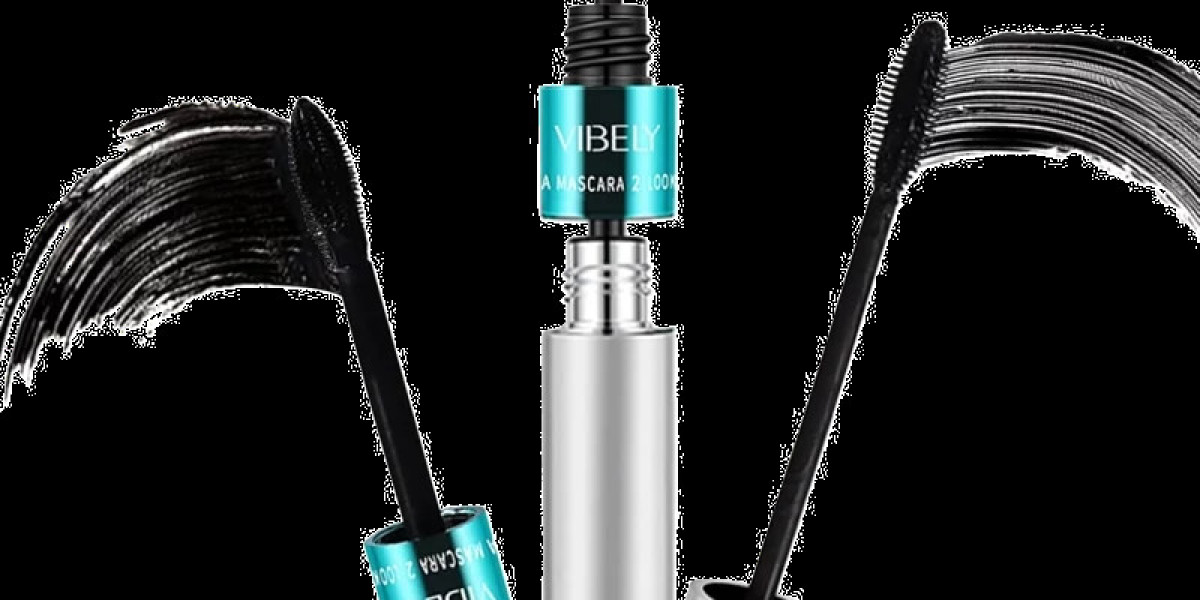CBD for a Better Night's Sleep: A Complete Guide
You're likely no stranger to the frustrating cycle of lying awake at night, desperate for a restful night's sleep that never seems to come. But what if you could harness the power of CBD to transform your sleep patterns and wake up feeling rejuvenated and invigorated? CBD interacts with your body's internal clock, regulates hormones and neurotransmitters, and promotes relaxation, reducing anxiety and stress. It even improves sleep quality and duration. As you explore the world of CBD for better sleep, you'll discover how to choose the right products, combine them with sleep hygiene, and achieve a deeper, more invigorating - Natural sleep aids sleep - and that's just the beginning of your journey to a restful night's sleep
Key Takeaways
• CBD interacts with the body's internal clock, regulating hormones and neurotransmitters to maintain a healthy circadian rhythm and promote relaxation.
• CBD oil reduces anxiety and stress, improving sleep quality and duration by addressing underlying causes of insomnia and promoting relaxation.
• The science behind CBD sleep involves regulating cannabinoid receptors, maintaining neurotransmitter balance, reducing inflammation, and regulating body temperature.
• Combining CBD with sleep hygiene practices, such as establishing a bedtime routine and creating a peaceful environment, can enhance its sleep-promoting effects.
• When choosing a CBD product, scrutinize labels, explore product reviews, and select a high-quality product backed by science and positive reviews to ensure efficacy and safety.
How CBD Affects Sleep Patterns
As you explore the connection between CBD. Anxiety management solutions and sleep, you'll discover that cannabidiol interacts with your body's internal clock, regulating the delicate balance of hormones and neurotransmitters that dictate your sleep-wake cycle. This internal clock, also known as your circadian rhythm, is responsible for controlling the timing of your sleep stages. When your circadian rhythm is in harmony, you're more likely to experience a restful night's sleep
CBD helps regulate your sleep patterns by interacting with your body's endocannabinoid system, which plays an essential role in maintaining a healthy sleep-wake cycle. By promoting relaxation and reducing anxiety, CBD helps you move smoothly through the different sleep stages, including REM and non-REM sleep. This can lead to improved sleep quality, increased energy, and enhanced cognitive function. Additionally, CBD's ability to regulate your circadian rhythm can help you fall asleep faster and stay asleep longer, resulting in a more invigorating and rejuvenating sleep experience.
Understanding CBD and Insomnia
Exploring the relationship between CBD and insomnia requires understanding how CBD interacts with your brain chemistry and how it can impact the underlying causes of insomnia. It is crucial to grasp the different types of insomnia, from acute to chronic, and how CBD can help address the underlying factors contributing to your sleeplessness (Health and wellness supplements). By examining the complex relationship between CBD and insomnia, you will be better equipped to harness the power of CBD for a restful night's sleep
CBD and Brain Chemistry
Your brain's internal chemistry plays an important role in regulating your sleep patterns, and CBD's impact on brain chemistry is a key factor in its potential to alleviate insomnia. CBD interacts with your brain's neurotransmitters, influencing the balance of chemicals that regulate sleep and wakefulness.
| Neurotransmitter | Role in Sleep Regulation |
|---|---|
| GABA | Inhibitory neurotransmitter, promotes relaxation and sleep |
| Glutamate | Excitatory neurotransmitter, promotes wakefulness and arousal |
| Adenosine | Regulates sleep and arousal, builds up during wakefulness |
| Serotonin | Involved in sleep initiation and maintenance |
| Melatonin | Hormone regulating sleep-wake cycles |
CBD's ability to regulate neurotransmitters and maintain endocannabinoid balance is essential in promoting a restful night's sleep. By influencing the activity of neurotransmitters like GABA and glutamate, CBD can help calm the mind and body, making it easier to fall asleep and stay asleep. Additionally, CBD's impact on the endocannabinoid system helps regulate the body's natural sleep-wake cycle, leading to a more balanced and restorative sleep.
Insomnia Causes and Types
Insomnia, a sleep disorder that affects approximately 30% of the general population, can stem from a complex array of causes, including psychological, environmental, and physiological factors that disrupt your ability to fall asleep or stay asleep. You may find yourself lying awake at night due to stress response, triggered by work, relationships, or other life events. Irregular sleep schedules, like working night shifts or traveling across time zones, can also throw off your circadian rhythms, making it difficult to fall asleep. Additionally, lifestyle habits such as consuming caffeine and electronics before bedtime can interfere with your sleep. Mental health conditions like anxiety and depression can also contribute to insomnia. You may have tried to establish a consistent sleep schedule, but still find yourself struggling to get a good night's rest. Understanding the underlying causes of your insomnia is essential in finding an effective solution. By identifying the root cause, you can take the first step towards improving your sleep quality and finding relief from the exhausting cycle of insomnia.
The Science Behind CBD Sleep
Research suggests that CBD interacts with your body's internal clock, regulating the sleep-wake cycle and influencing the brain's neurotransmitters to promote a restful night's sleep. This is made possible by CBD's ability to interact with your body's endocannabinoid system, which is responsible for maintaining homeostasis and regulating various physiological processes, including sleep.

Here's how CBD affects your sleep: - drcbdstore.com
- Regulation of cannabinoid receptors: CBD binds to cannabinoid receptors, specifically CB1 and CB2, which are involved in regulating sleep and wakefulness.
- Neurotransmitter balance: CBD helps maintain a balance of neurotransmitters, such as serotonin and GABA, which are essential for relaxation and sleep.
- Reduced inflammation: CBD's anti-inflammatory properties reduce inflammation, which can disrupt sleep patterns.
- Regulation of body temperature: CBD helps regulate body temperature, which is essential for falling asleep and staying asleep.
- Anxiolytic effects: CBD's anxiolytic effects reduce anxiety and stress, making it easier to fall asleep and stay asleep.

CBD Oil for Sleep Anxiety
As you prepare for a restful night's sleep, anxiety can be a major obstacle, but CBD oil may be just what you need to calm your mind and body. Sleep anxiety is a common issue that can make it difficult to fall asleep, stay asleep, or get quality sleep. CBD oil has shown promise in reducing anxiety and promoting relaxation, making it an attractive solution for those struggling with sleep anxiety.
When you're feeling anxious, your body's natural response is to go into "fight or flight" mode, making it hard to wind down at night. CBD oil can help calm your nervous system, promoting relaxation and reducing feelings of anxiety. You can incorporate CBD relaxation techniques, such as deep breathing exercises or meditation, to enhance the calming effects of CBD oil. Additionally, anxiety journaling exercises can help you identify and release pent-up emotions, making it easier to drift off to sleep. By combining CBD oil with these relaxation techniques, you can create a sleep-conducive environment that promotes a restful and rejuvenating night's sleep.
Benefits of CBD for Sleep
By integrating CBD into your sleep routine, you can access a wealth of benefits that can enhance your sleeping experience, from reducing restlessness and promoting deeper sleep to improving the overall quality of your rest (Dr. CBD Store energy products). As you explore the benefits of CBD for sleep, you'll discover a natural solution that can transform your sleep experience
Here are just a few of the advantages you can expect from using CBD for sleep:
- Reduced anxiety and stress: CBD's anxiolytic properties can help calm your mind and body, making it easier to fall asleep and stay asleep.
- Improved sleep quality: CBD can help regulate your sleep patterns, leading to more restorative sleep and better overall sleep quality.
- Enhanced sleep recovery: CBD's anti-inflammatory properties can help your body recover from the physical demands of the day, leading to better sleep recovery.
- Increased relaxation: CBD relaxation techniques can help you unwind and relax, making it easier to fall asleep.
- Better sleep duration: CBD can help regulate your sleep patterns, leading to longer, more restful sleep.
CBD Dosage for Sleep Disorders

When it comes to using CBD for sleep disorders, determining the right dosage is crucial, since it can greatly impact the effectiveness of the treatment. You want to find the sweet spot that works for you, and it may take some trial and error to get it just right.
| CBD Dosage | Effects on Sleep Quality |
|---|---|
| Low (2.5-10mg) | Mild relaxation, may help with sleep onset |
| Medium (10-20mg) | Improved sleep quality, increased CBD tolerance |
| High (20-50mg) | Enhanced sleep duration, deeper sleep |
| Extra High (50+mg) | May cause drowsiness, but be cautious of CBD tolerance |
As you experiment with different dosages, keep in mind that CBD tolerance can build up over time. Start with a low dose and gradually increase as needed. It's also important to take into account your individual sleep needs and goals. Are you looking to improve sleep quality, or do you need help falling asleep faster? By finding the right dosage for your unique needs, you can experience the full benefits of CBD for a better night's sleep.
CBD Vs. Prescription Sleep Aids
Compare the benefits of CBD to prescription sleep aids, and you'll find that CBD offers a more natural, gentle approach to promoting a restful night's sleep - Best CBD supplements for health. Prescription sleep aids can be effective, but they often come with unwanted side effects and addictive qualities. CBD, on the other hand, is non-habit-forming and gentle on your body. Here are just a few key differences between CBD and prescription sleep aids:
- Natural vs. Synthetic: CBD is a natural, plant-based compound, while prescription sleep aids are often synthetic chemicals.
- Addictive Qualities: Prescription sleep aids can be habit-forming, while CBD is non-addictive.
- Cost Comparison: CBD products are often more affordable than prescription sleep aids.
- Side Effects: Prescription sleep aids can cause dizziness, drowsiness, and memory problems, while CBD is generally well-tolerated.
- Long-term Use: Prescription sleep aids are not recommended for long-term use, while CBD can be used safely over an extended period.
When it comes to getting a good night's sleep, you deserve a safe and natural solution. CBD offers a gentle, non-addictive approach to promoting restful sleep, making it an attractive alternative to prescription sleep aids.
Combining CBD With Sleep Hygiene
When exploring the benefits of CBD for sleep, it's crucial to combine it with good sleep hygiene practices. You'll want to focus on establishing a consistent bedtime routine, signaling to your brain that it's time to wind down. By creating a sleep-conducive environment and sticking to a routine, you'll set yourself up for a restful night's sleep, and CBD can enhance these efforts.

Establishing Bedtime Routine
By establishing a consistent bedtime routine, you can train your brain to associate certain activities with sleep, making it easier to wind down and prepare for a restful night's sleep, and CBD can be a valuable addition to this routine. Click here for drcbdstore.com.
Energy-boosting CBD products
To create a bedtime routine that works for you, try incorporating the following activities:
- Relaxation Techniques: Practice gentle stretches, deep breathing exercises, or meditation to calm your mind and body.
- Screen Time: Avoid screens for at least an hour before bed, or use blue light filtering glasses or apps to reduce screen time's sleep-disrupting effects.
- Reading Materials: Choose calming reading materials, such as a book or magazine, to help you unwind.
- Calming Activities: Engage in calming activities, like listening to soothing sounds, doing some light yoga, or practicing gratitude journaling.
- Peaceful Environment: Create a peaceful environment by dimming the lights, keeping the room cool, and using cozy textiles like soft blankets or plush rugs.
Creating Sleep-Conducive Environment
You can optimize your sleep environment by combining CBD with sleep hygiene practices, effectively creating a sleep sanctuary that signals to your brain that it's time to wind down (Benefits of CBD oil). By incorporating calming elements into your bedroom, you can enhance the relaxing effects of CBD and improve the quality of your sleep
| Sleep-Conducive Elements | Benefits |
|---|---|
| Dim Lighting | Reduces stimulation, promotes relaxation |
| Calming Colors (Blue, Green, Neutral) | Soothes the mind, reduces anxiety |
| Soothing Textures (Soft Fabrics, Plush Rugs) | Provides comfort, relaxation |
| Peaceful Decor (Nature-Inspired, Minimalist) | Creates a calming atmosphere |
| Quiet Environment | Minimizes distractions, promotes relaxation |

CBD Sleep Studies and Research
Researchers have conducted numerous studies to investigate the potential of CBD in improving sleep quality and duration, with many yielding promising results. As you explore the world of CBD for better sleep, understanding the research behind it is vital. While CBD controversies and research limitations exist, the existing studies provide valuable insights.
Here are some key findings:
- A 2019 study published in the Journal of Clinical Psychology found that CBD reduced anxiety and improved sleep quality in individuals with anxiety disorders.
- A 2018 review of 49 studies on CBD and sleep concluded that CBD may help regulate sleep patterns and improve sleep quality.
- A 2017 study published in the Journal of Psychopharmacology found that CBD reduced symptoms of insomnia in individuals with chronic pain.
- A 2014 study published in the Journal of Clinical Pharmacy and Therapeutics found that CBD improved sleep quality in individuals with Parkinson's disease.
- A 2011 study published in the Journal of Psychopharmacology found that CBD reduced symptoms of REM sleep behavior disorder.
These studies demonstrate the potential of CBD in improving sleep quality and duration. However, acknowledging the limitations of existing research and the need for further studies to fully understand CBD's effects on sleep is crucial.

Choosing the Right CBD Product
With the potential benefits of CBD for sleep established, it's time to ponder how to select a high-quality CBD product that suits your needs. You're not alone in this quest, as the CBD market is flooded with options. To navigate this landscape, it's important to scrutinize CBD labels carefully. Look for products that clearly state the CBD content, THC levels, and extraction methods. Be cautious of labels with vague claims or lacking in transparency.
Next, explore product reviews from multiple sources to get a thorough view of a product's efficacy and potential side effects. Pay attention to reviews from users with similar needs and preferences to yours. Be careful of fake or biased reviews, and instead, opt for reviews from reputable sources. By doing your due diligence, you'll increase your chances of finding a CBD product that helps you sleep better. Remember, a high-quality CBD product is one that is backed by science, has a clear label, and is supported by genuine customer reviews.
Frequently Asked Questions
Can I Use CBD for Sleep During Pregnancy or Breastfeeding?
'When considering CBD for sleep during pregnancy or breastfeeding, you should exercise caution, as its effects on maternal anxiety and fetal development are still unknown, and more research is needed to guarantee safety.'
Will CBD Show up on a Drug Test for Work or School?

You're wondering if CBD will show up on a drug test for work or school. Here's the deal: most drug policies and workplace screening tests aren't designed to detect CBD, but false positives can occur, so it's crucial to understand test accuracy and employment laws.
Can I Mix CBD With My Prescription Sleep Medication?
Coincidentally, you're not alone in wondering if mixing CBD with prescription sleep meds is safe. You should consult your doctor about dosage considerations and potential medication interactions to guarantee a harmonious blend for a restful night's sleep.

Is CBD Oil Safe for Children With Sleep Disorders?
Dr. CBD Store wellness products
You're right to ask about CBD oil safety for kids with sleep disorders. Currently, there's limited pediatric research, and child dosing is unclear, so consult a pediatrician before considering CBD for your child's sleep issues.
Can I Vape CBD Oil or Should I Use Tinctures Instead?
'When exploring CBD options, think of a master chef: you need quality ingredients and precision. Vaping CBD requires careful consideration of Vape Quality and Oil Potency to guarantee a safe, effective experience - don't compromise on either, or you'll end up with a recipe for disaster (Natural anxiety solutions).'
Conclusion
So, you've made it to the end of this CBD sleep guide, and you're probably wondering if it's time to ditch those prescription sleep aids for a more natural solution. Newsflash: you're still awake, and those dark circles under your eyes aren't going away on their own. But seriously, CBD might just be the ticket to a better night's sleep. Just remember, it's not a magic pill (although, let's be real, it kind of is). Combine it with good sleep hygiene, and you might just wake up feeling like a human being again.







